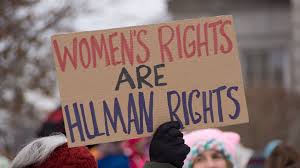UN Expert Warns Gender Inequality Blocks Women’s Right to Development
Deva’s report emphasizes the mutually reinforcing relationship between gender equality and the right to development: achieving one advances the other.

A United Nations human rights expert has warned that without substantive gender equality, half of the world’s population—women and girls—will remain unable to fully realise their right to development, a cornerstone of human rights and sustainable progress.
Speaking at the 60th session of the Human Rights Council, Surya Deva, UN Special Rapporteur on the right to development, stressed that gender equality must not fluctuate with political shifts but instead be recognized as a foundational human right.
Persistent Barriers to Equality
Despite decades of advocacy and progress, women and girls worldwide continue to face systemic barriers. Deva’s report highlights several structural inequalities that hinder women’s development rights:
-
Legal Inequalities: Women enjoy less than two-thirds of the legal rights available to men. For example, in 62 economies, the legal age of retirement for women is lower than for men, limiting their long-term economic participation.
-
Unpaid Labour: Women spend 2.5 times more hours on unpaid domestic and caregiving work compared to men, reducing opportunities for paid employment, education, and leadership roles.
-
Disproportionate Impacts: Women and girls are more vulnerable to poverty, austerity policies, climate change, armed conflicts, new technologies, and unilateral sanctions, amplifying existing inequalities.
Gender Equality and the Right to Development
Deva’s report emphasizes the mutually reinforcing relationship between gender equality and the right to development: achieving one advances the other. As the international community marks the 30th anniversary of the Beijing Declaration and Platform for Action, Deva called for decisive, transformative action to fulfill commitments made three decades ago.
“States, international organisations, policymakers, businesses and other actors should pay attention to the mutually reinforcing nexus between gender equality and the right to development,” Deva said.
From Recipients to Agents of Change
The Special Rapporteur cautioned against framing women and girls merely as recipients of empowerment initiatives. Instead, he stressed that when women are enabled as agents of change, they help create a more inclusive, peaceful, and sustainable world.
He described the right to development as a transformative human right, one that addresses systemic injustices and has the potential to dismantle the root causes of gender inequality.
Five Pathways for Change
The report identifies five dimensions of the right to development that can help advance substantive gender equality:
-
Collective Dimension – Recognizing communities and groups as rights-holders, not just individuals.
-
Active, Free, and Meaningful Participation – Ensuring women and girls can engage in decision-making at all levels, from households to parliaments.
-
Fair Distribution – Equitable sharing of resources, opportunities, and benefits of development.
-
Intersectionality – Addressing the compounded discrimination faced by women across lines of class, ethnicity, disability, or age.
-
International Cooperation – Strengthening multilateral commitments and solidarity to tackle cross-border inequalities.
Deva emphasized that meaningful participation in decision-making is a powerful tool to combat discrimination, exclusion, and violence experienced by women in both private and public life.
A Call for Decisive Action
As global crises—from climate change to geopolitical conflict—exacerbate inequalities, the expert urged governments and international organizations to ensure that gender equality is not sidelined. Instead, it must remain central to the global development agenda.
“The persistence of gender inequality is neither inevitable nor insurmountable. By leveraging the transformative potential of the right to development, we can address root causes and enable women and girls to thrive as equal agents of change,” Deva said.










